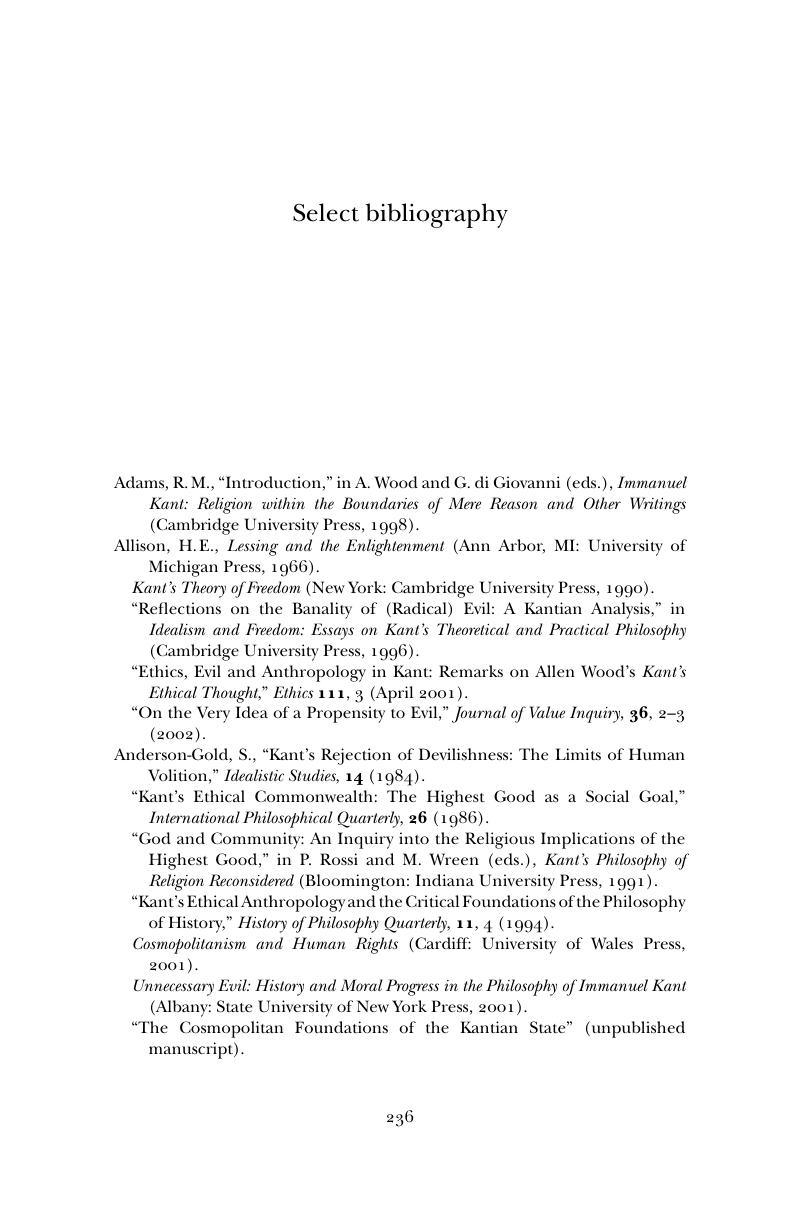Book contents
- Frontmatter
- Contents
- Contributors
- List of abbreviations
- Introduction
- 1 Kant's “Metaphysics of Permanent Rupture”: Radical Evil and the Unity of Reason
- 2 Kantian Moral Pessimism
- 3 Kant, the Bible, and the Recovery from Radical Evil
- 4 Kant's Moral Excluded Middle
- 5 Evil Everywhere: The Ordinariness of Kantian Radical Evil
- 6 An Alternative Proof of the Universal Propensity to Evil
- 7 Kant and the Intelligibility of Evil
- 8 Social Dimensions of Kant's Conception of Radical Evil
- 9 Kant, Radical Evil, and Crimes against Humanity
- 10 Unforgivable Sins? Revolution and Reconciliation in Kant
- Select bibliography
- Index
- References
Select bibliography
Published online by Cambridge University Press: 04 May 2010
- Frontmatter
- Contents
- Contributors
- List of abbreviations
- Introduction
- 1 Kant's “Metaphysics of Permanent Rupture”: Radical Evil and the Unity of Reason
- 2 Kantian Moral Pessimism
- 3 Kant, the Bible, and the Recovery from Radical Evil
- 4 Kant's Moral Excluded Middle
- 5 Evil Everywhere: The Ordinariness of Kantian Radical Evil
- 6 An Alternative Proof of the Universal Propensity to Evil
- 7 Kant and the Intelligibility of Evil
- 8 Social Dimensions of Kant's Conception of Radical Evil
- 9 Kant, Radical Evil, and Crimes against Humanity
- 10 Unforgivable Sins? Revolution and Reconciliation in Kant
- Select bibliography
- Index
- References
Summary

- Type
- Chapter
- Information
- Kant's Anatomy of Evil , pp. 236 - 241Publisher: Cambridge University PressPrint publication year: 2009



